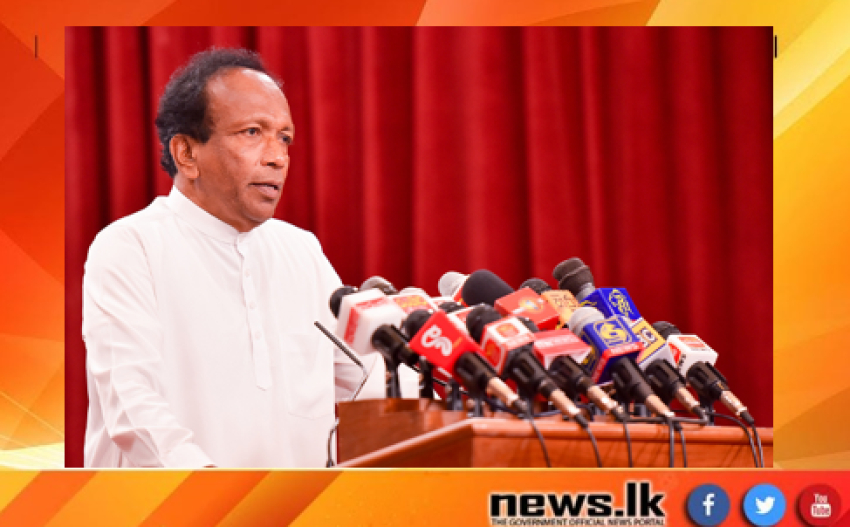Additionally, the State Minister noted that negotiations with the French government have taken place to open two more liquid milk factories in addition to the existing six.
These remarks were made by State Minister for Livestock Development, D.B. Herath, during a Press conference held at the Presidential Media Centre (PMC) today (09) under the theme ‘Collective path to a stable country’.
Addressing the media, state Minister DB Herath further emphasized:
The country currently faces a deficit in the production of liquid milk, meeting only 40% of the national requirement. To fulfil the remaining 60%, an expenditure of over Rs. 34 billion is incurred in importing it. Despite the annual requirement being 750 million litres of milk, the domestic production stands at only 350 million litres.
In response to this challenge, the Department of Agriculture has initiated measures to bolster small and medium-scale farmers for surplus liquid milk production.
Furthermore, as part of the liquid milk promotion program, six factories have been established with assistance from France. These factories are strategically located in Wariyapola, Wennappuwa, Attanagalla, Colombo and Polonnaruwa.
Furthermore, a liquid milk factory has been inaugurated in the Nawalapitiya area. The French Government has arranged to provide assistance of Rs. 60 million for the import of milk processing equipment required for this factory and the training of local technicians. The Nawalapitiya Multi-Purpose Cooperative Society (MPCS) has invested Rs. 60 million in constructing the necessary facilities such as buildings. This factory has a daily production capacity of 5000 litres of milk for consumption.
Additionally, the French Government has been informed about plans to initiate similar factories in the Jaffna and Kilinochchi areas. The current year’s budget includes an allocation of Rs. 250 million. While a specific provision of Rs. 200 million has been earmarked for the development of the goat farming industry.
Furthermore, directives have been issued to the Department of Animal Production and Health to offer animal feed imported from foreign countries to farmers at a fair price, with tariff concessions.




















